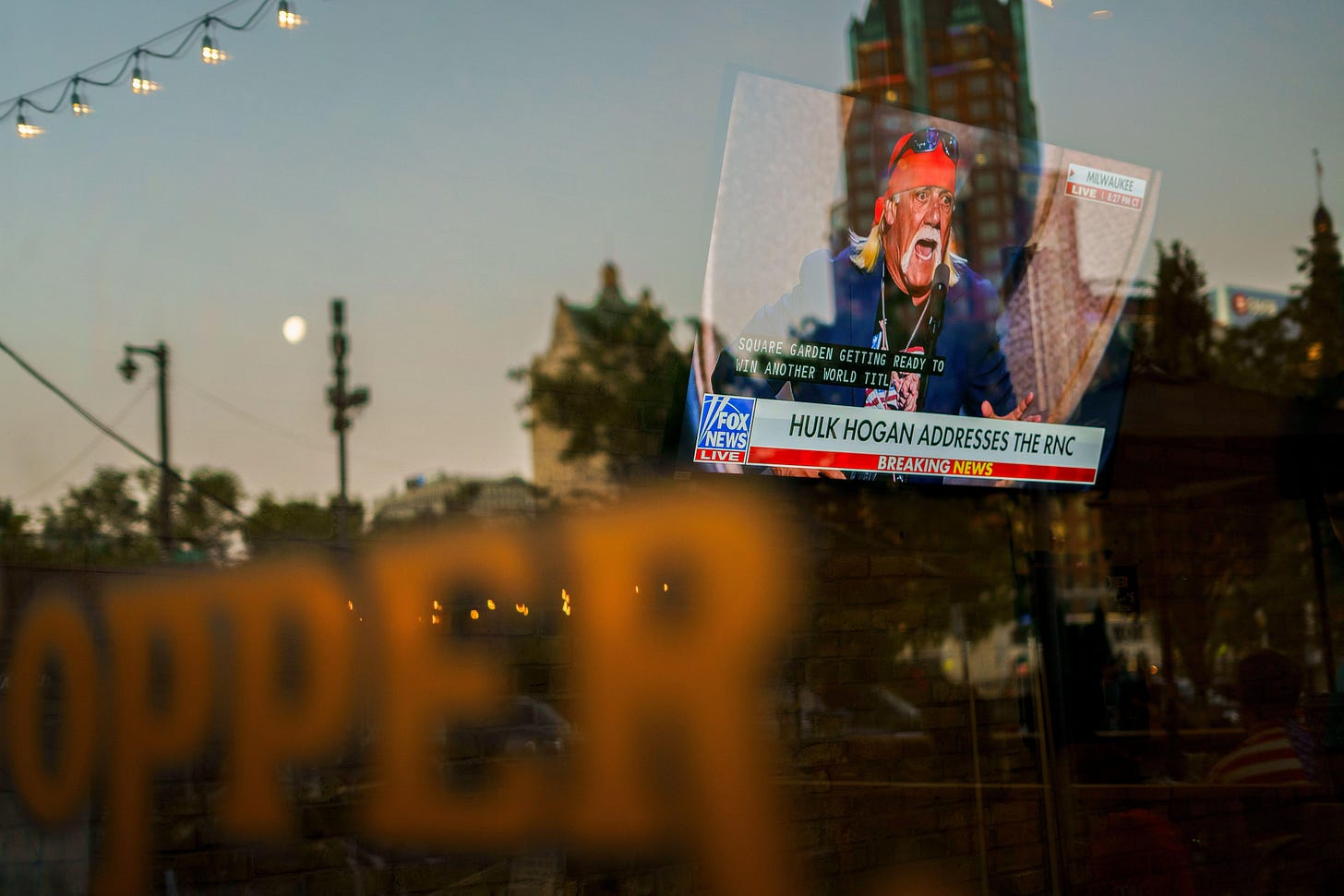Oprah vs. Hulk
What the aesthetics of the DNC and RNC reveal about our politics.
Political conventions are a form of theater. The stage, the lights, the confetti; the personalities, who, from the rostrum, make the case for their party; and the driving ambition: to rally the base, demoralize the enemy, and win.
In most years, the oratory supports the agenda. The parties select their nominees, assemble a platform, and focus their rheto…



